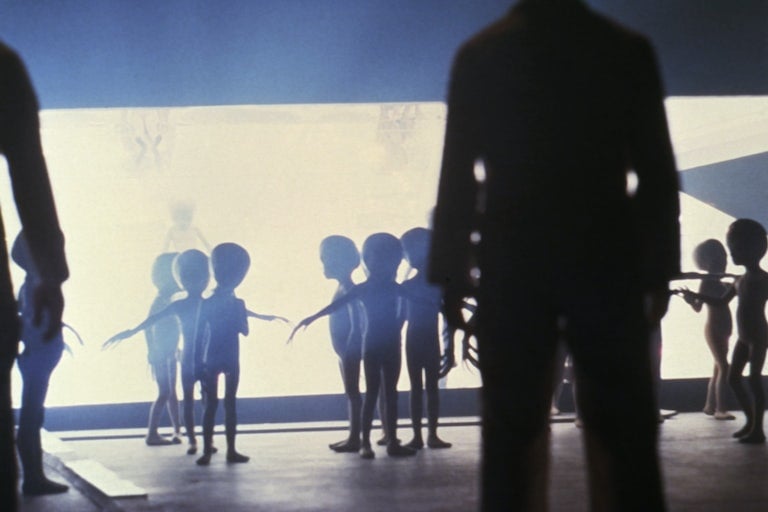
The Fermi Paradox, a perplexing question that has haunted scientists and stargazers for decades, continues to baffle us. If the cosmos is teeming with potentially habitable planets, where are all the alien civilizations? Countless theories have been proposed, each with its share of uncertainties.
Russian physicist Alexander Berezin, hailing from the National Research University of Electronic Technology (MIET), introduces a new perspective: the “First in, last out” solution to the Fermi Paradox. His hypothesis suggests that when a civilization reaches the point of interstellar expansion, it inadvertently spells doom for other civilizations it encounters.

Berezin’s theory doesn’t presuppose malevolent extraterrestrials; rather, it implies that they might not even notice us. Their relentless galactic colonization may outweigh any concern for our existence. As he puts it, “They simply won’t notice, the same way a construction crew demolishes an anthill to build real estate because they lack incentive to protect it.”
This grim portrayal of our place in the universe leads to an even bleaker realization: we might be the future architects of countless civilizations’ demise. Berezin suggests that our continued existence hints that we are not likely to be the ants in this scenario; instead, we could be the future destroyers of numerous alien societies.

Intriguingly, Berezin’s solution rests on simplified assumptions, primarily centered on one critical parameter: growth. For him, the driving force is the relentless urge to expand beyond one’s home planet. If this expansionist urge becomes dominant, it could potentially overrun other life forms in the cosmos. Historical examples of such forces include colonialism and capitalism.
Does this theory offer a stark choice: conquer or be destroyed? Berezin remains hopeful that his hypothesis is flawed. Another aspect of his solution posits that life is more likely to be found in close proximity rather than at a distance. Therefore, the discovery of alien life before we reach the point of destruction could pave the way for a more enlightened and responsible civilization.

The Fermi Paradox, while still shrouded in mystery, continues to spark imaginative and sometimes unsettling theories. It challenges us to contemplate our place in the cosmos and the profound implications of potential encounters with extraterrestrial life. Whether we are the architects of our own destiny or destined for a more harmonious coexistence with other civilizations remains one of the universe’s greatest enigmas.

Leave a Reply